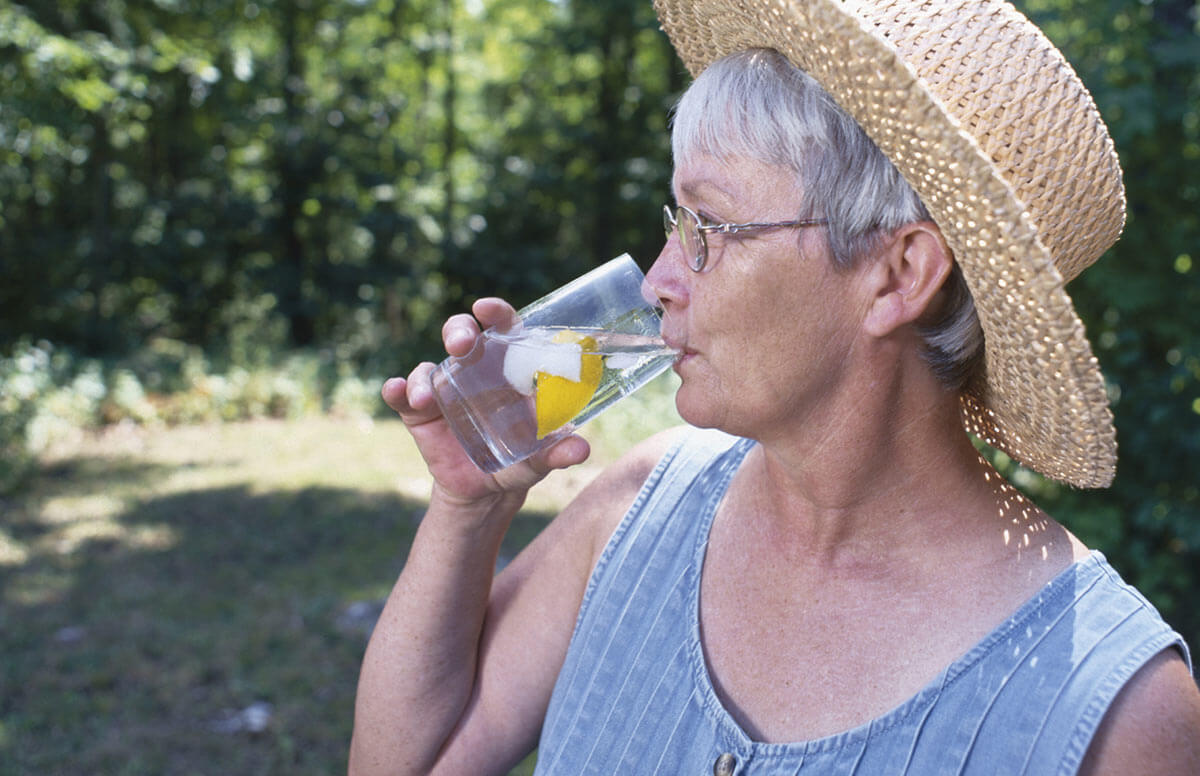
Summer days are always tough to manage and are getting worse each year. So, here are a few tips on how to beat the heat.
1. Drink plenty of water. Drinking water keeps your body hydrated. Limit your alcohol consumption as it reduces your body’s capacity to retain water. Always carry a water bottle with you.
2. Avoid eating hot and spicy foods. Eating these foods in hot weather makes you sweat and can cause stomach upsets.
3. Wear comfortable clothing, especially cotton which keeps the body cool and absorbs sweat. Avoid wearing satin and polyester clothing.
4. Exercise in moderation comfortably, do not overwork.
5. Keep cool by relaxing at the pool, beach and water parks.
6. Avoid direct sunlight from 10am-3pm and stay indoors as much possible.
7. Always carry an umbrella and a hat with you. Avoid direct sun which may burn skin, cause sun stroke and skin cancer.
8. Visit shopping centres, libraries, theatres, indoor pools, restaurants, and coffee shops often. This keeps you engaged and can even reduce your electricity bills.
9. Cool your car down using the air conditioning.
10. Make sure fans, air conditioners and coolers are in good working condition to use. Keep your windows, shutters and doors open.
11. Stock up your fridge with the variety of fruits such as watermelon, rock melon and citrus fruits. You can mix the fruits together to make a refreshing, non-alcoholic drink.
12. Wear comfortable shoes. Avoid walking with bare foot.
13. Shower twice a day. This is the easiest way to keep you cool and feel refreshed instantly. Stay clean to avoid any infection.
Signs of dehydration:
• Be thirsty or have a dry mouth, lips or tongue;
• Have a headache or be dizzy or light-headed;
• Have dark urine and not so much of it;
• Severe dehydration can cause extreme thirst, fast breathing and/or heart rate, low blood pressure, fever, little or no urine, confusion.
STAY SAFE DURING THE STORM SEASON
A hot summer also means storms. Protect your property and yourself by carrying out these simple steps provided by the Queensland SES.
1. Create a home emergency kit. Containing important documents in sealed bags or on a USB; a torch; sturdy gloves; fresh water for three days; toiletries; waterproof bags; a portable radio; three days of non-perishable food and can opener; essential medication; first-aid kit; and spare batteries for radio, torch and mobile phone.
2. Prepare your home. Keep your roof in good condition; keep gutters and downpipes clear; trim trees and overhanging branches; ensure your car, home and contents insurance is adequate and current; secure loose items around your property; and learn how to safely turn off your power, water and gas.
3. Tune in. Listen to your local radio and TV stations for storm warnings and weather updates.
– By volunteer Vijayalakshmi Jayaram
Posted by


